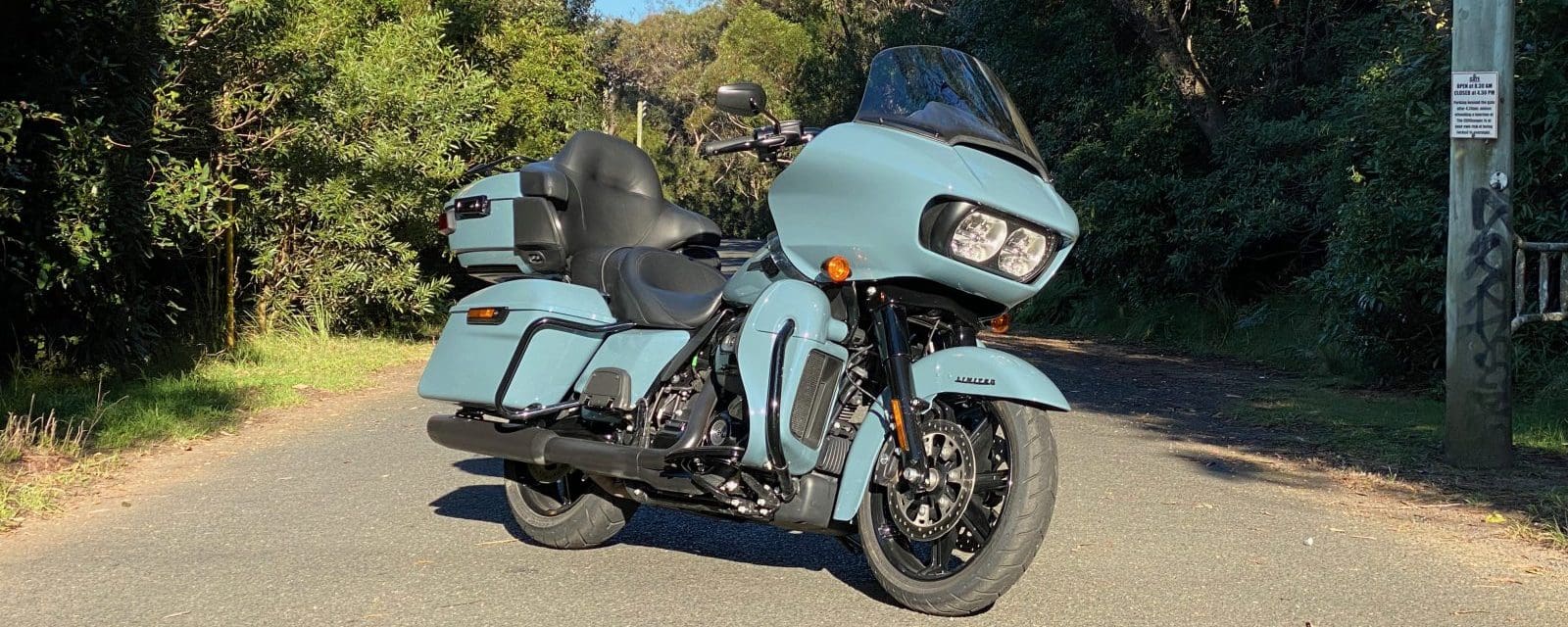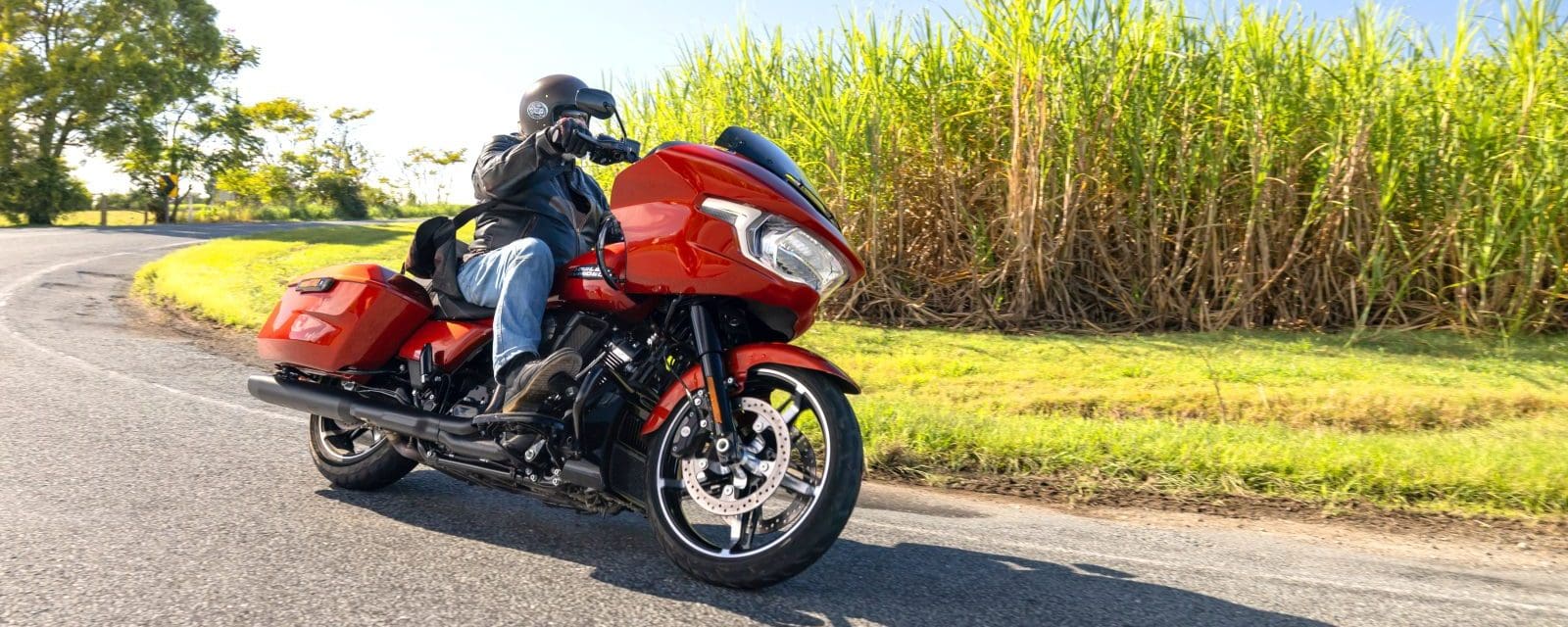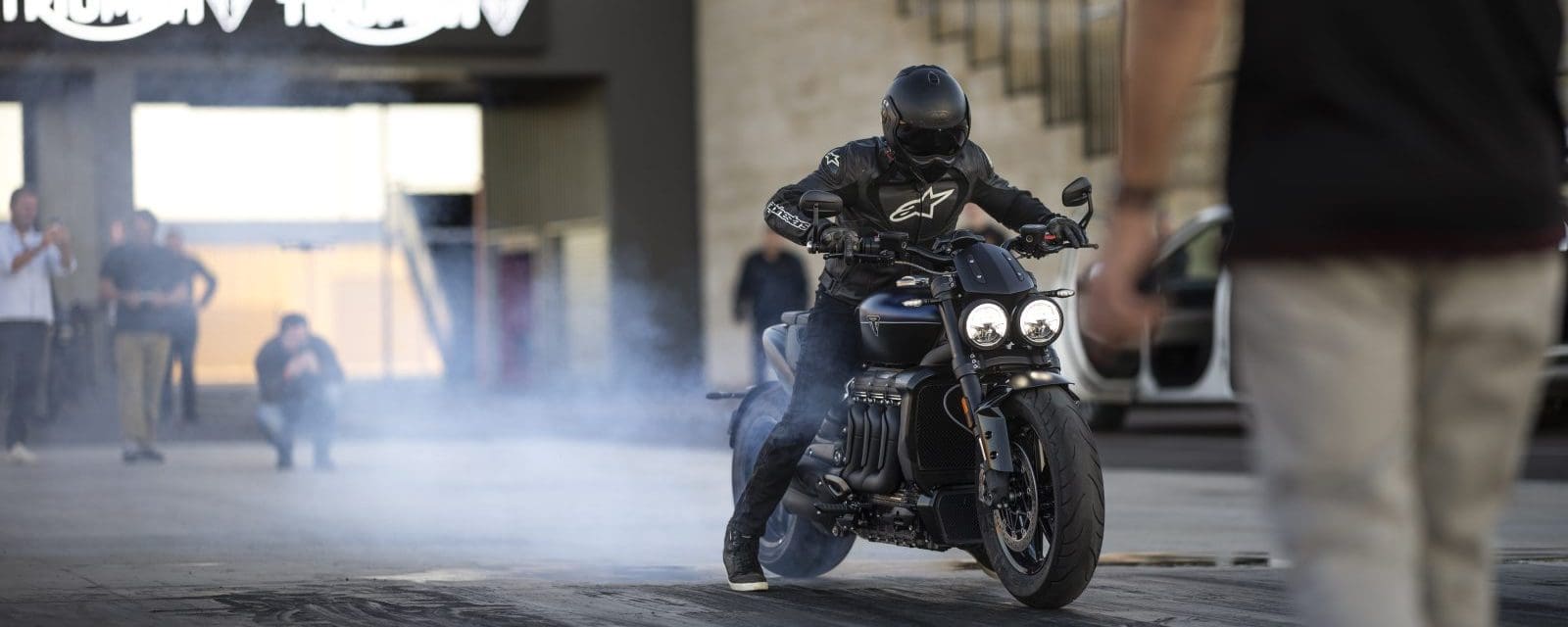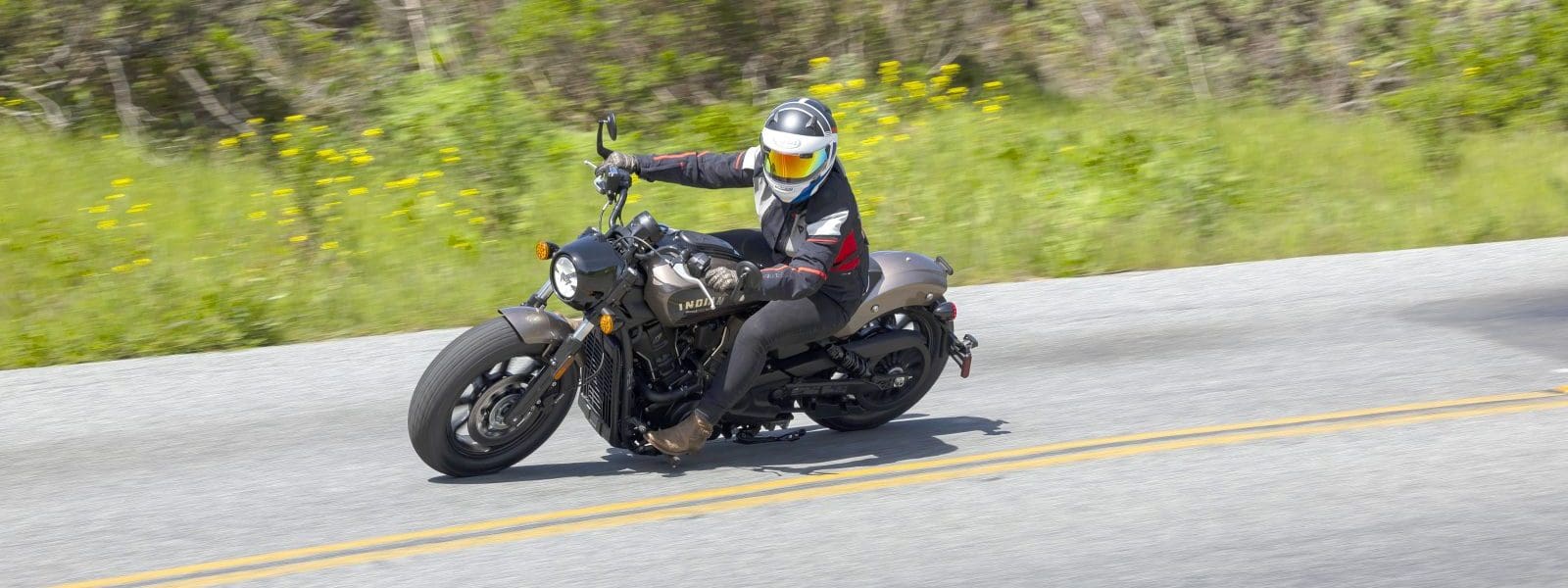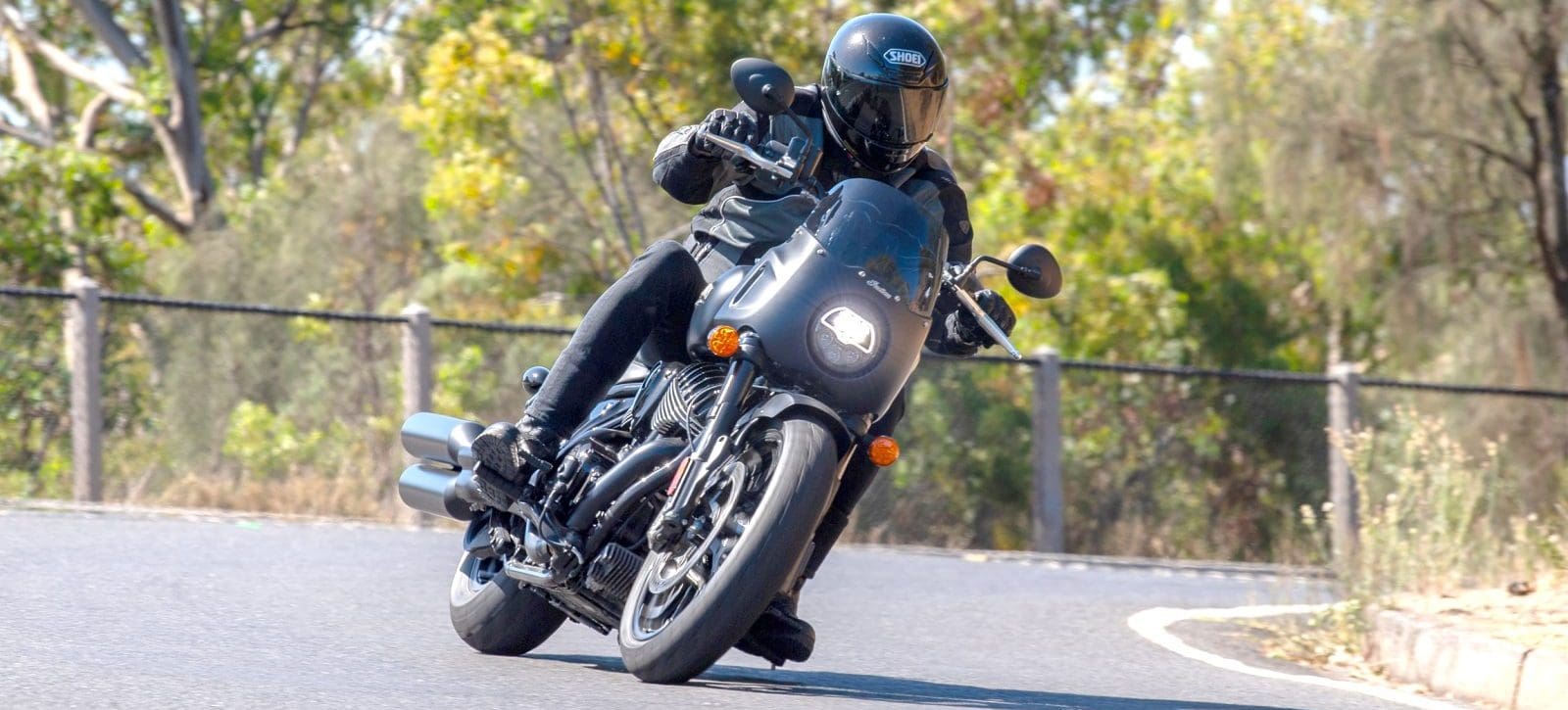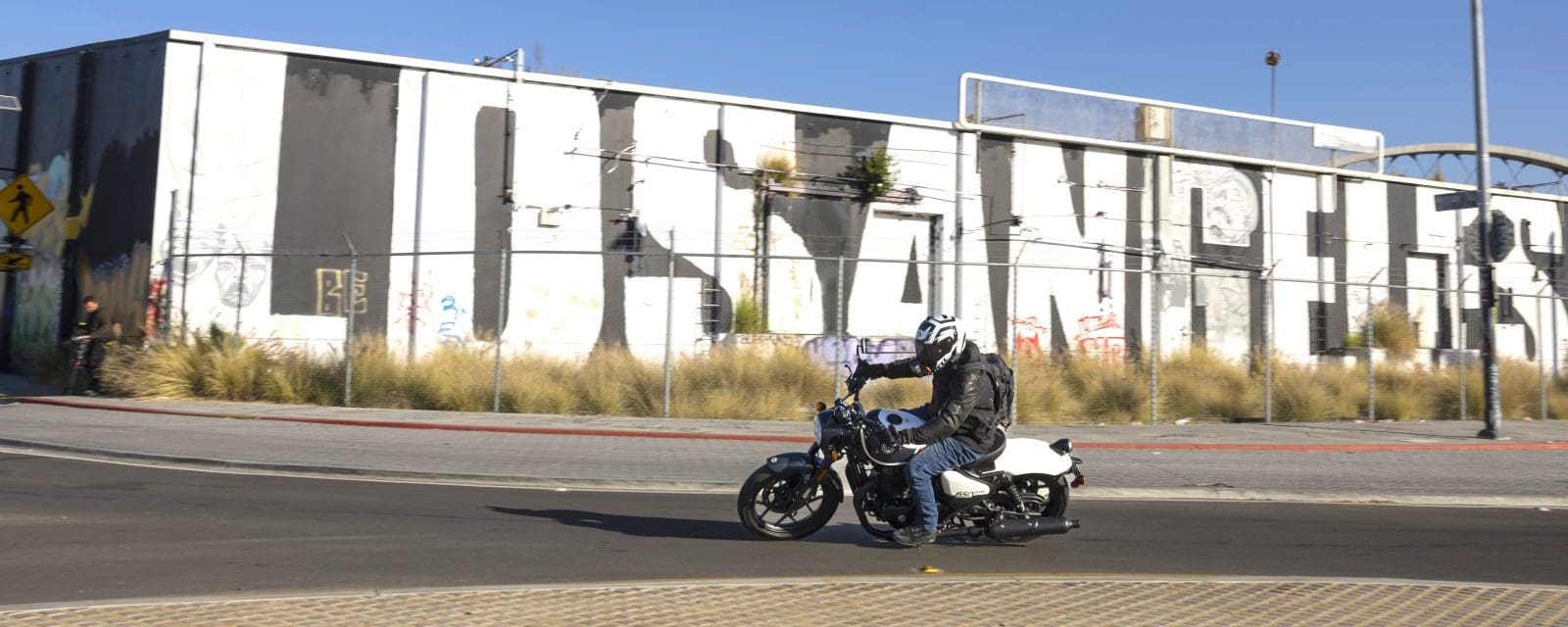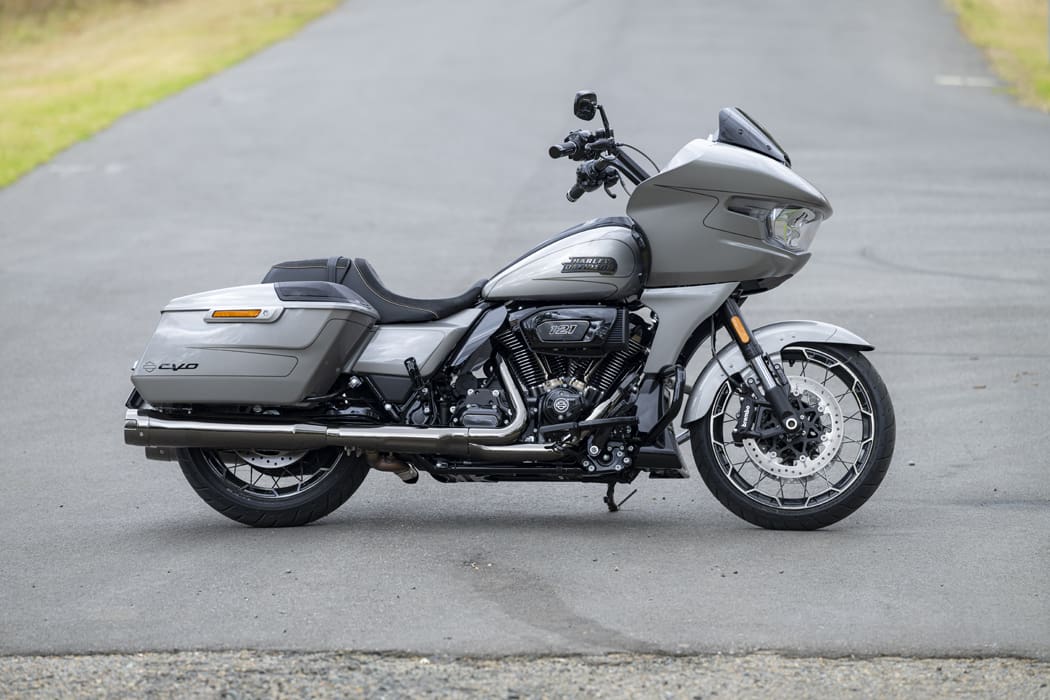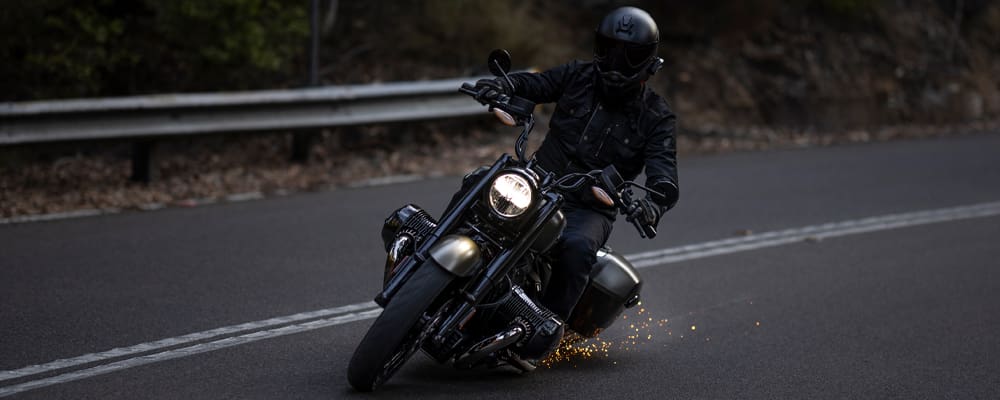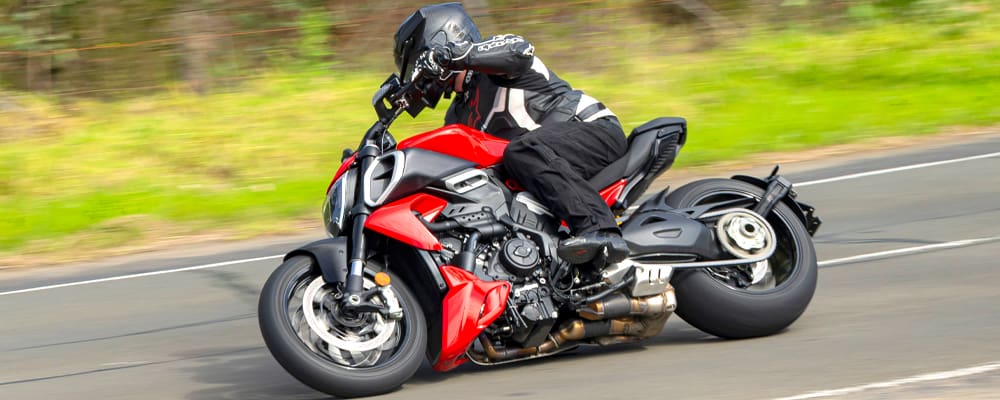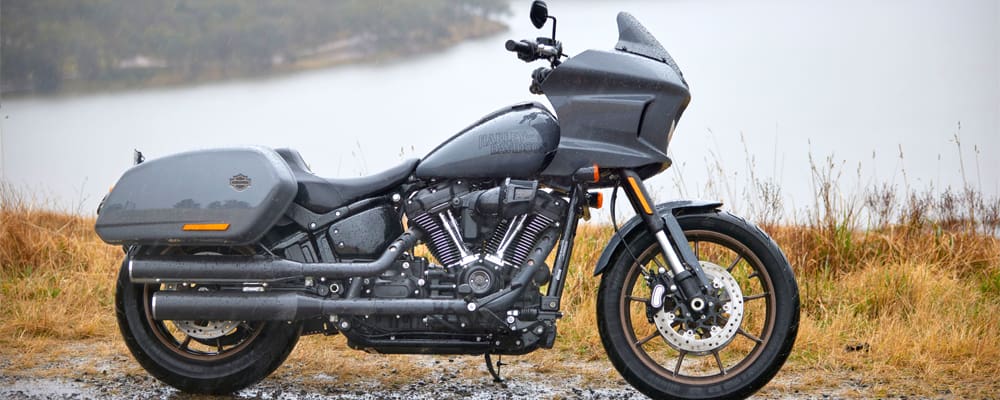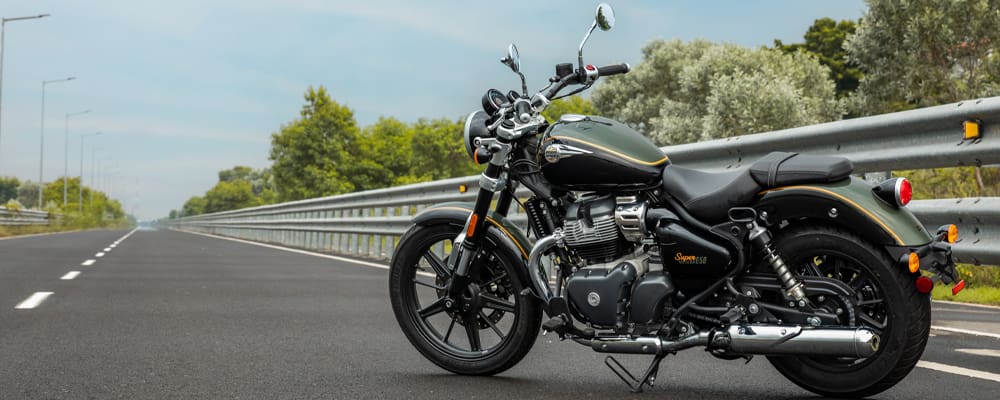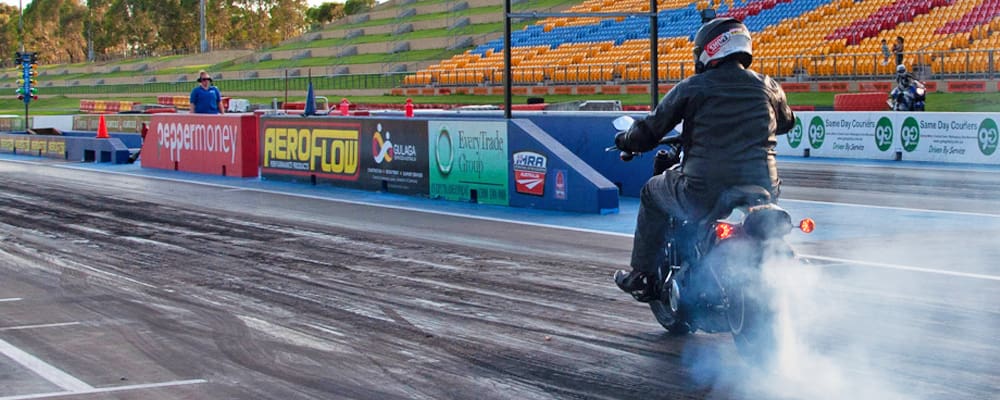It doesn’t seem that long ago Ducati introduced its daring and genre-busting Diavel concept. And while Yamaha’s V-Max was undoubtedly the sector’s pioneer, many still struggled to put a label on the big Italian V-twin – was it a cruiser, a muscle bike, a sporty naked maybe or even a tourer? But 12 years on, the Ducati Diavel has come to define its own purpose and place in the world.
I, for one, have toured the Highlands of Scotland on one, ridden a thoroughly enjoyable trackday on one, and, of course, showed off on the city streets on one. A Diavel is as a Diavel does.
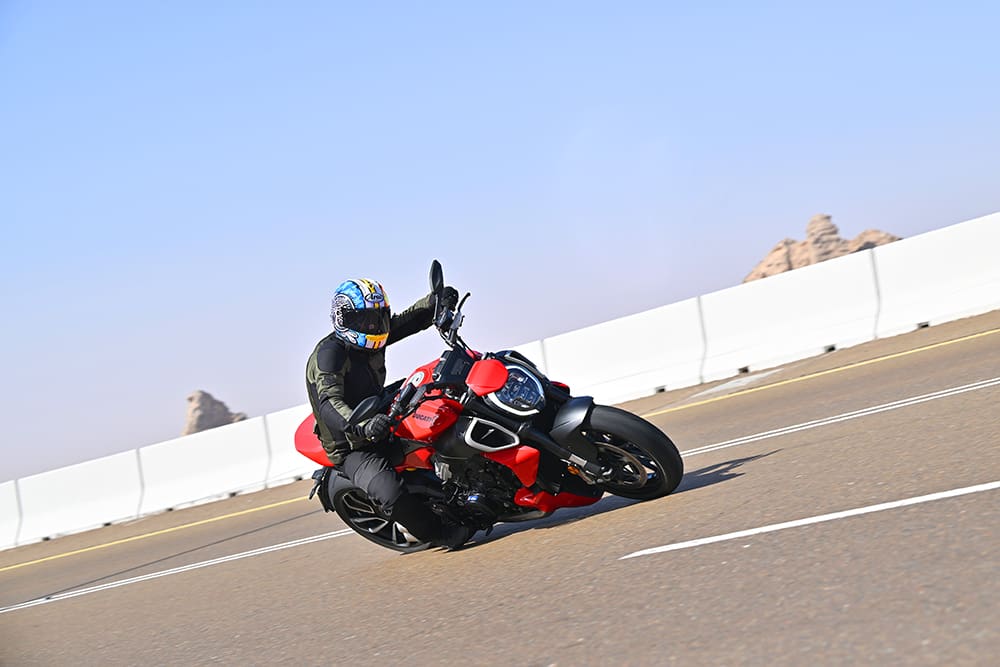
If we had to put a label on it, however, ‘performance cruiser’ probably fits best and, since its inception, the Diavel has relentlessly highlighted the stagnation of the traditional American-style cruiser market with its speed, handling, and sheer desirability. Also central to the Diavel’s success has been Ducati’s willingness to evolve the bike over the years. The last major update was in 2019 with the introduction of the 1260 S, and now for 2023, we get an all-new Diavel that ditches its V-twin powerplant for the Granturismo V4.
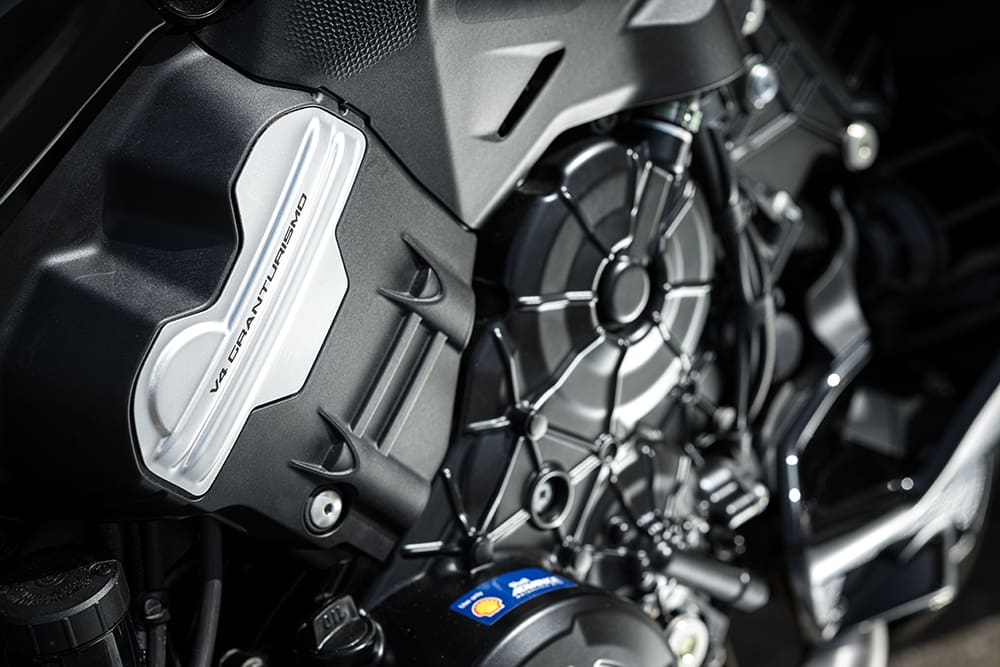
This is a big step for Ducati. Moving away from a traditional, torque-laden V-twin to the higher-revving V4 recently deployed so successfully in the Multistrada range won’t thrill everyone. The V4’s peak power is up, with a quoted 125kW (168hp) compared to 118kW (160hp) for the Diavel V-twin. Peak torque, however, is fractionally down – from 127Nm to 126Nm – and peaking 2500rpm higher at 7500rpm.
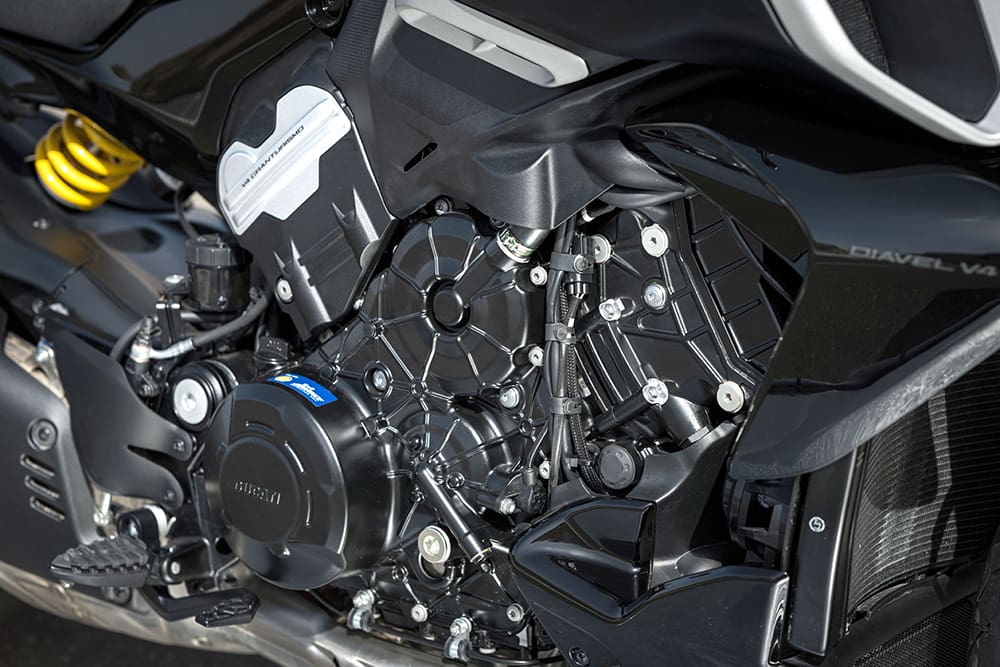
But Ducati hasn’t just thrown a new engine in an old chassis, and the new Diavel also gets an all-new monocoque frame. This unique design is light and compact, with a weight saving of 4.7kg. The V4 engine is 5kg lighter than the twin and, overall, Ducati has reduced the Diavel’s weight by a massive 13kg.
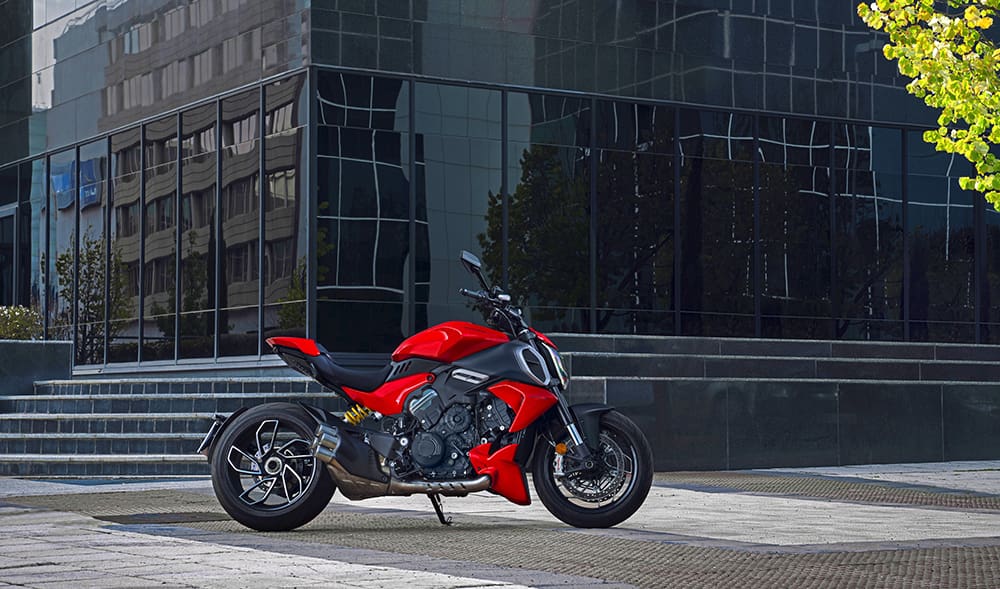
Chassis geometry remains relaxed but the steering is claimed to be sharper than previously, while the suspension gains more travel which, should in theory, improve comfort. Fuel tank capacity has increased by two litres to 20L and there are new Brembo Stylema stoppers up front as well as upgraded electronics – in fact, the Diavel name is about all that’s retained.
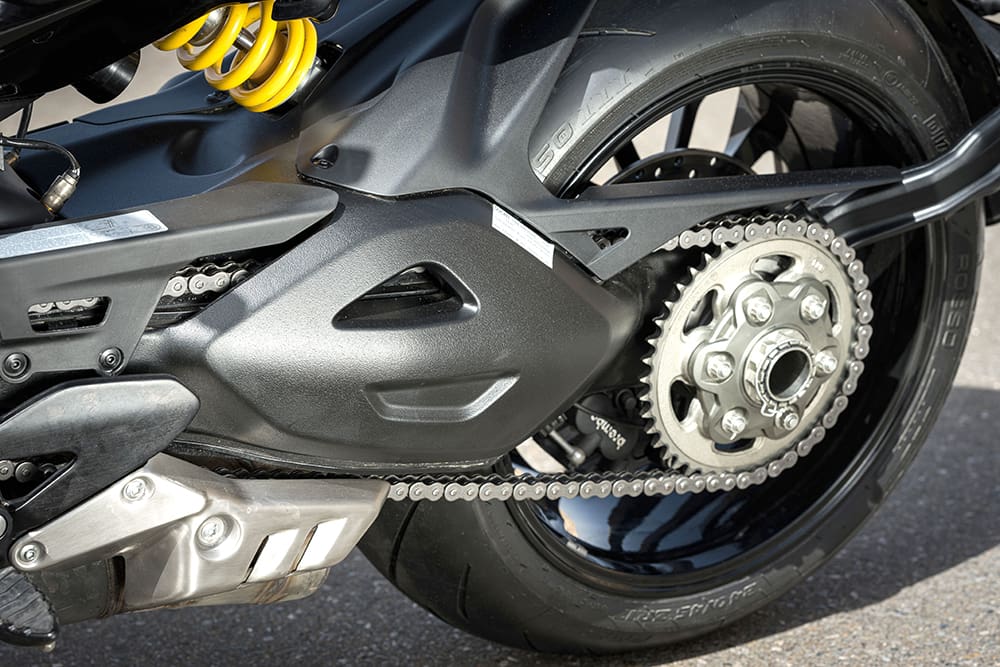
Design-wise, Ducati hasn’t strayed too far from the Diavel’s distinctive, muscular look; instead, the new bike has been sharpened and pleasingly indulged. The rider is now greeted by a much-improved, all-new five-inch TFT colour display with Bluetooth connectivity and (optional) turn-by-turn navigation. The screen is easy to read, while swanky backlit switchgear oozes class.
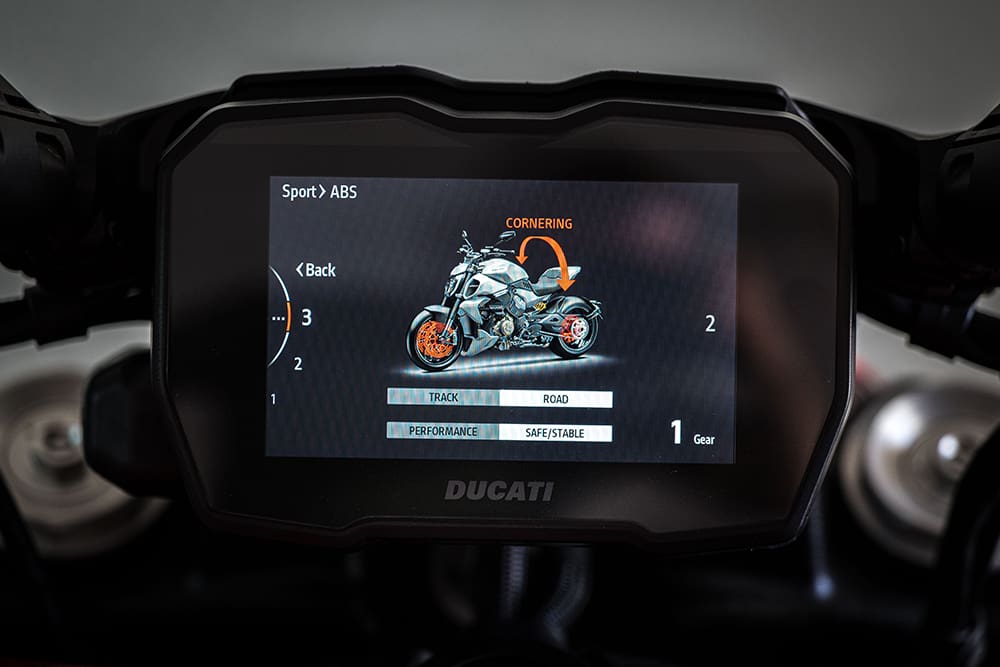
Four clustered exhaust exits protrude from the main silencer and instantly inform the passer-by that this is the new Diavel. The V4 version. The neat rear fold-down ’pegs are a nice touch, as are the hidden-away grabrail and matrix of LEDs that form the taillight. Ducati has stayed with the V-twin’s unique 240-section rear Pirelli, which gives it a seriously muscular appearance, while the overall finish and feel are as you’d expect of a premium Ducati. Superb.
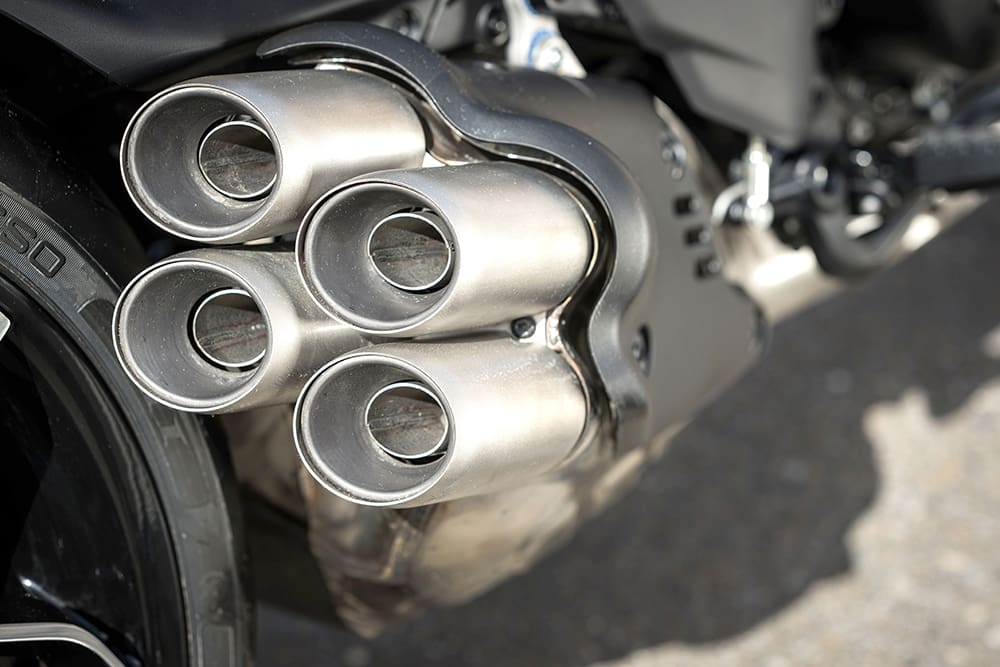
One press of the starter button and the new V4 barks into life. At tickover the rear two cylinders are deactivated to reduce heat to the rider and save on fuel (Ducati reckons this results in around a six percent saving). In first gear, all four cylinders are always active, but in the higher ratios it’s only above 4000rpm – or when your right wrist demands a large helping of torque – that all four cylinders kick in. The transition is smooth, but you can hear a change in the exhaust pitch when all four pots come to play.
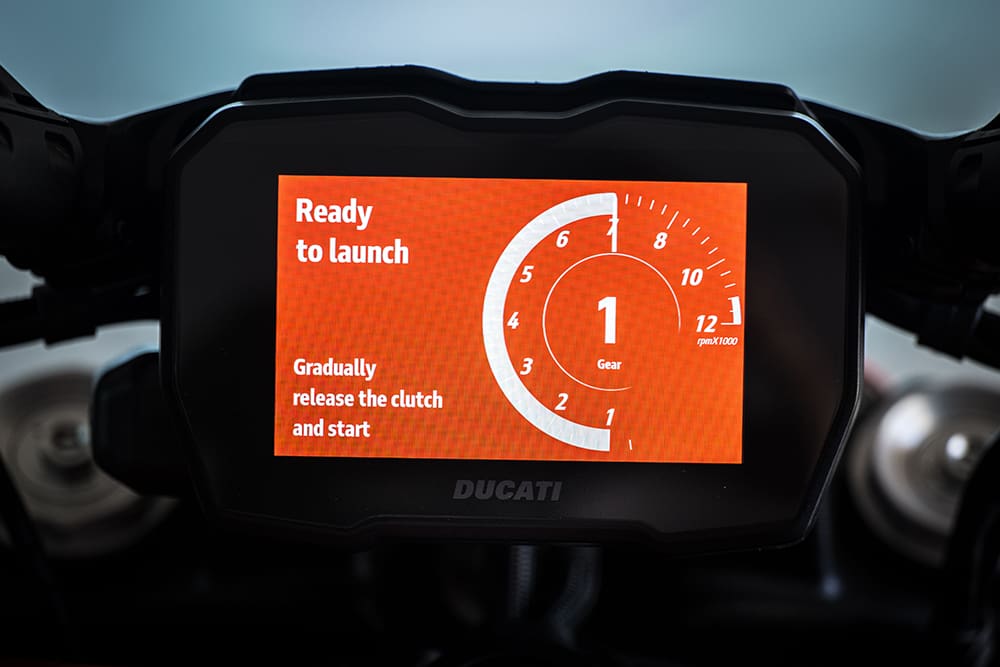
Peak torque might be slightly down compared to the V-twin, but you’d never pick it. The V4 Diavel pulls cleanly from low rpm and is effortlessly smooth compared to the twin. And when you want to have fun it will happily oblige and rev fluently towards the red line.
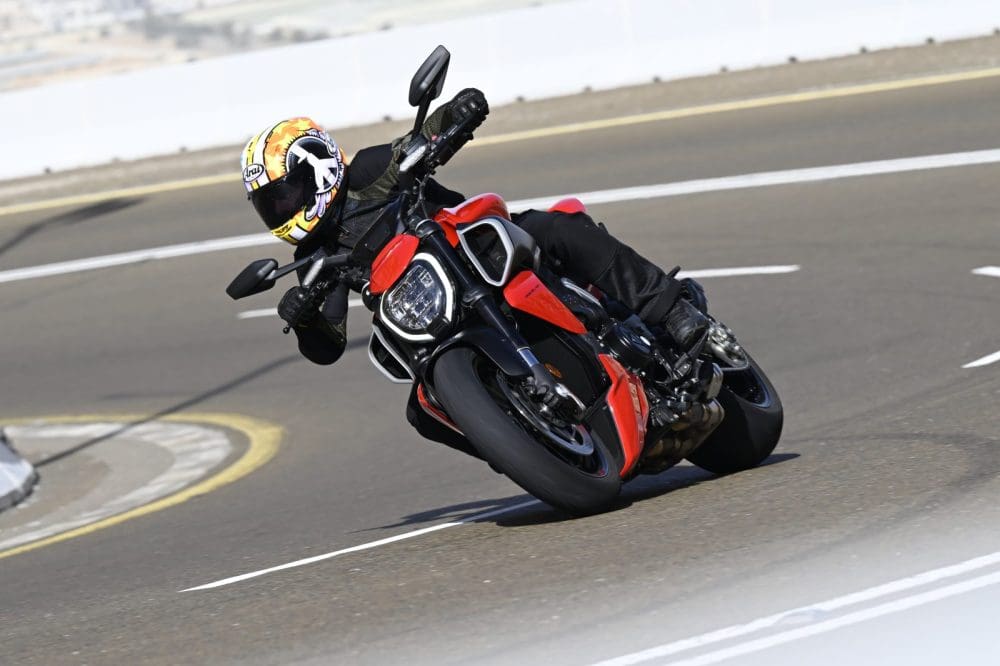
Don’t misinterpret the Diavel’s ‘cruiser’ looks, because this is one quick bike. In fact, its relatively long wheelbase combined with that fat, grippy rear Pirelli tyre and excellent electronics, including launch control, allow you to put the power down and make full use of the V4.
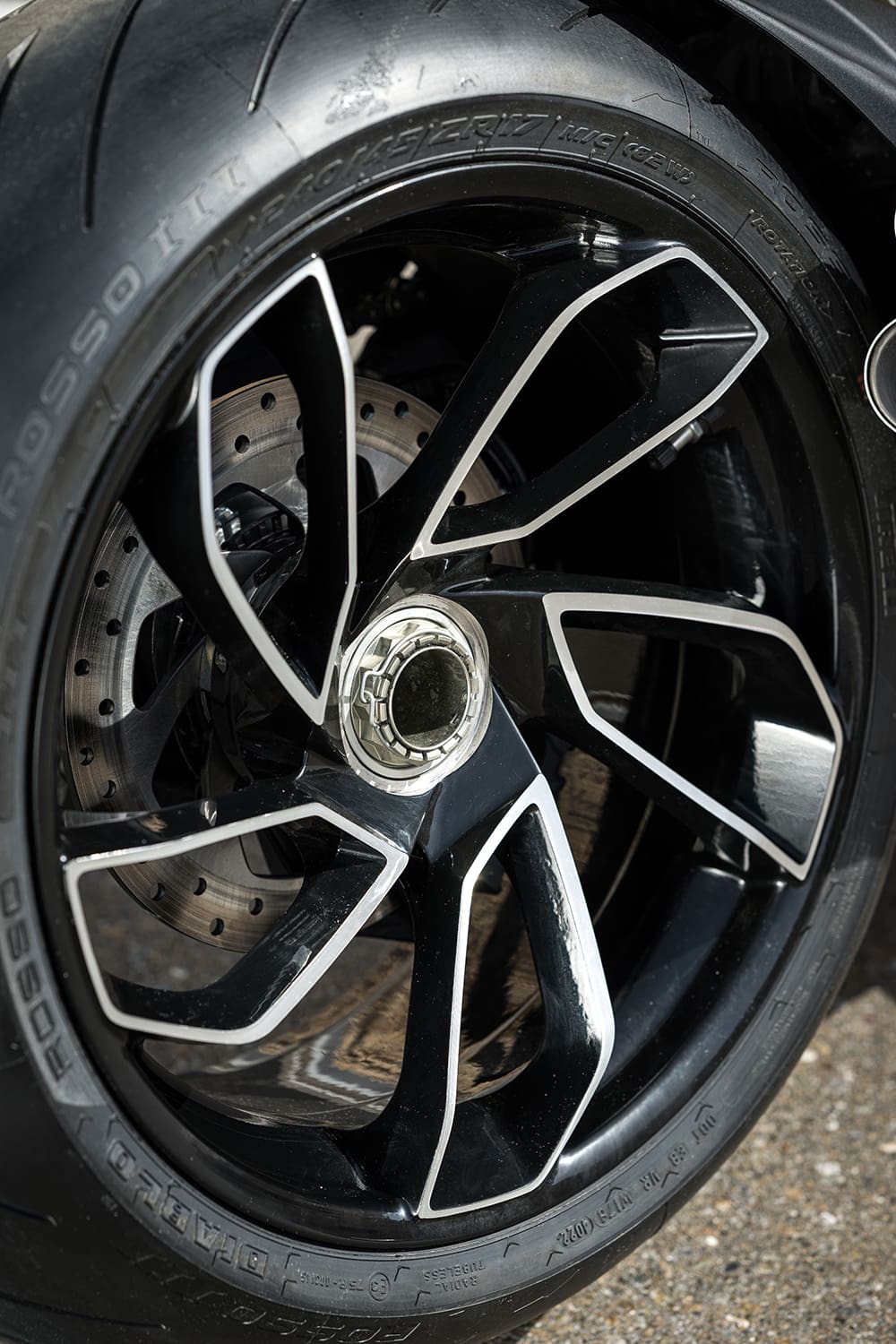
It isn’t just a straightliner either. The new Diavel handles superbly and is a noticeable step above the old bike when it hits the twisties. With that 13kg mass reduction it feels far lighter than before, much more comparable to a large Ducati Monster and unlike any other cruiser on the market. It handles like a sporty nakedbike – and a really good one at that.
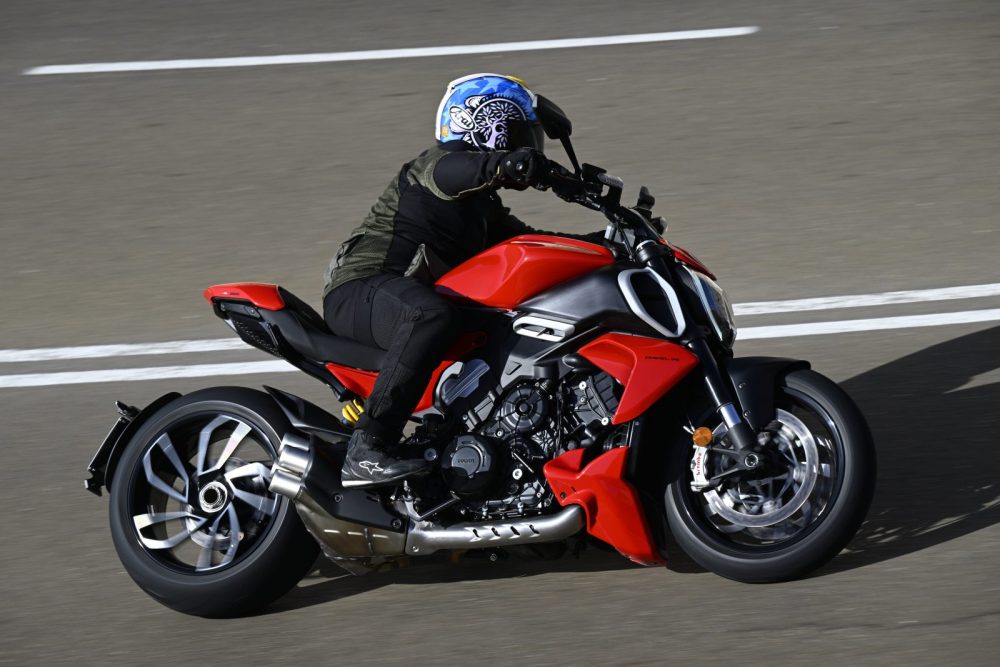
The new Diavel chassis and engine seem to carry more energy. The counter-rotating crank spins quicker, while the repositioned centre of mass helps it steer faster and with more accuracy. For a bike that has been designed, at least in part, as a muscular status symbol, it’s incredibly agile and light handling, especially when you consider that huge rear section Pirelli. Yeah, eventually the ’pegs will touch down, but even when they do the Ducati doesn’t feel like it is on the limit. It’s un-shakeably stable and the new suspension gives such thorough feedback it almost makes the excellent rider aids surplus to requirements.
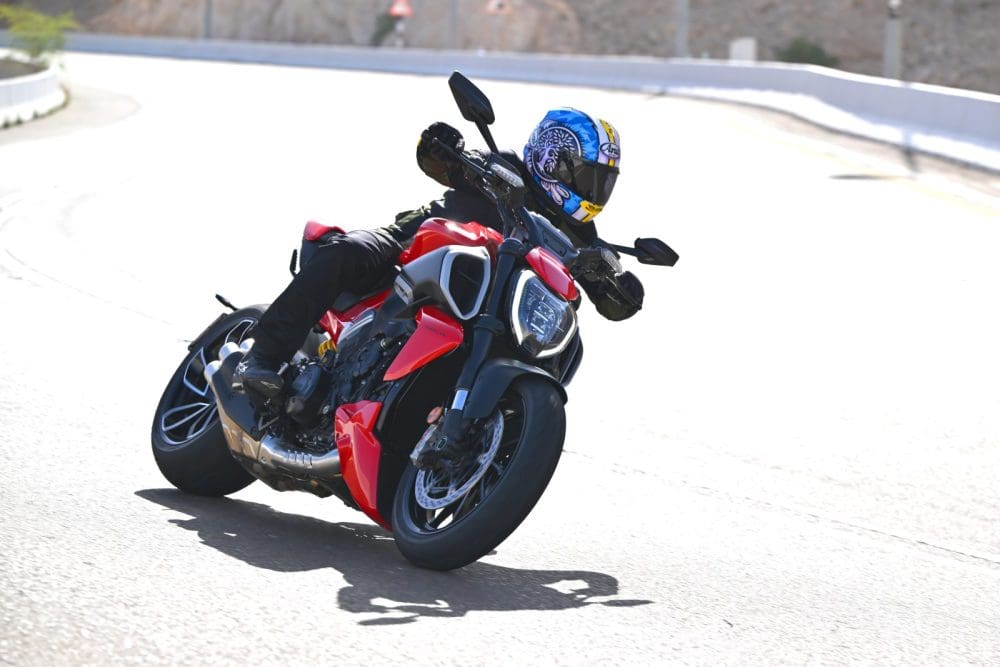
Our road test did have the benefit of near-perfect riding conditions in Dubai, racetrack-like grip and never-ending corners. I’m sure the rider aids will be beneficial in less-than-perfect conditions, especially in the wet. But on the test, I only felt the anti-wheelie kick in from time to time, and I eventually turned it off to have some fun.
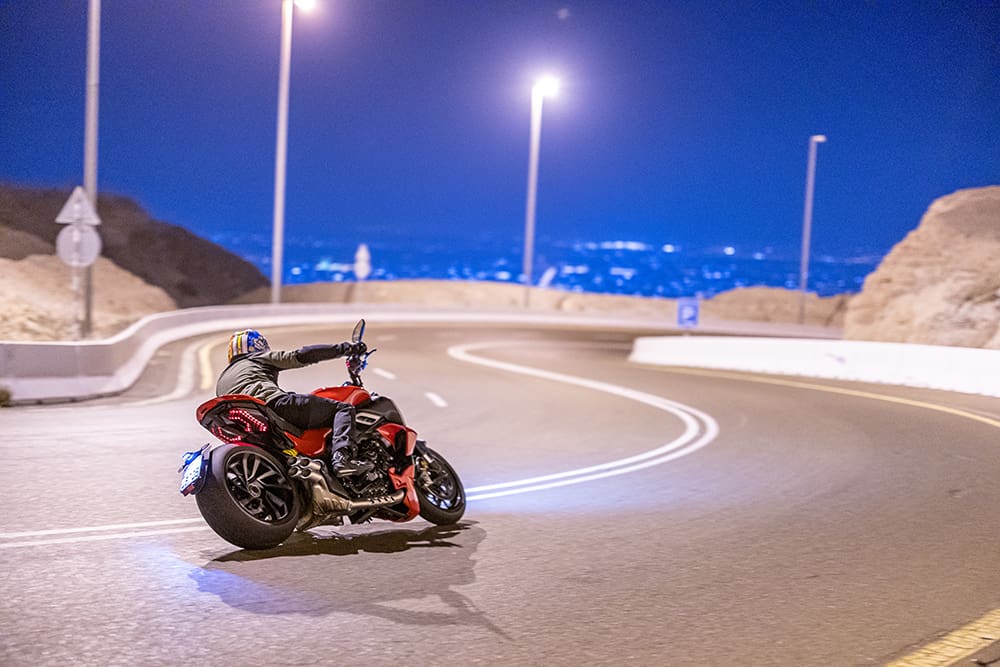
The handling and ease of use of the new Diavel are a real surprise, but so are the upgraded Brembo Stylema stoppers. These are similar to what you find on a racebike, yet here they are on a laidback and comfortable cruiser. A one-finger brush of the lever is all that is needed to haul up the beast as you pilot through town or along your favourite mountain road. If you want to test your bravery, grab a handful of front brakes and rely on the cornering ABS… like me, you will be amazed at what you can get away with.
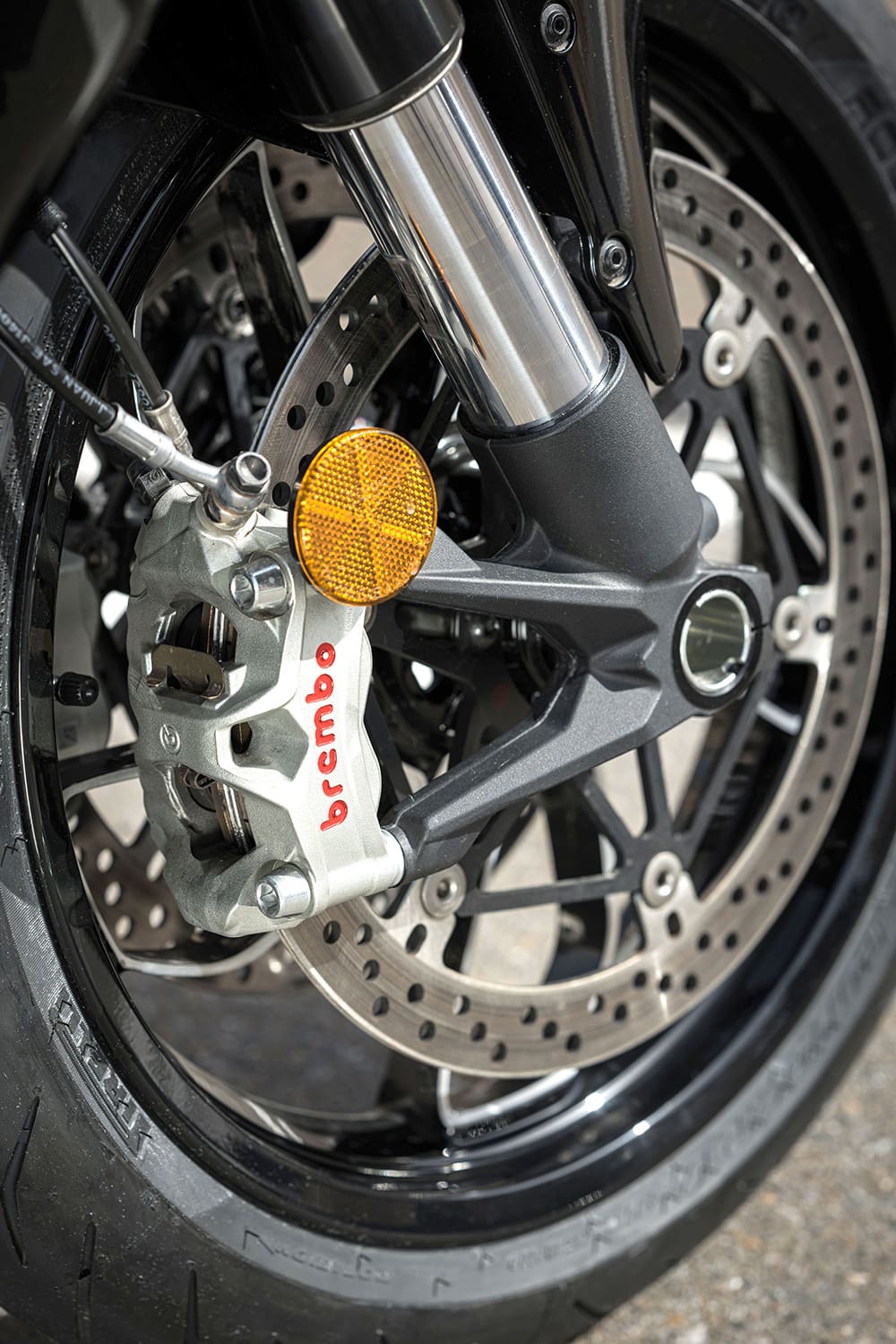
Our route was mainly determined so we could test the performance and handling of the new Diavel, not its overall comfort. That said, the extra travel of the suspension and large seat should make the bike comfier than before. I always found the Diavel V-twin to be a bit of a stretch, but now the ’bars are closer to the rider by 20mm, while the seat height remains relatively low at 790mm, despite being 35mm higher than before. I even jumped on the back to sample the larger pillion seat, neat little fold-out rear ’pegs and grabrail – and it wasn’t bad, again an improvement over the old bike. Cruise control comes as standard, too, so fit some touring accessories like luggage, a screen and heated grips and you can churn out some big miles in absolute comfort.
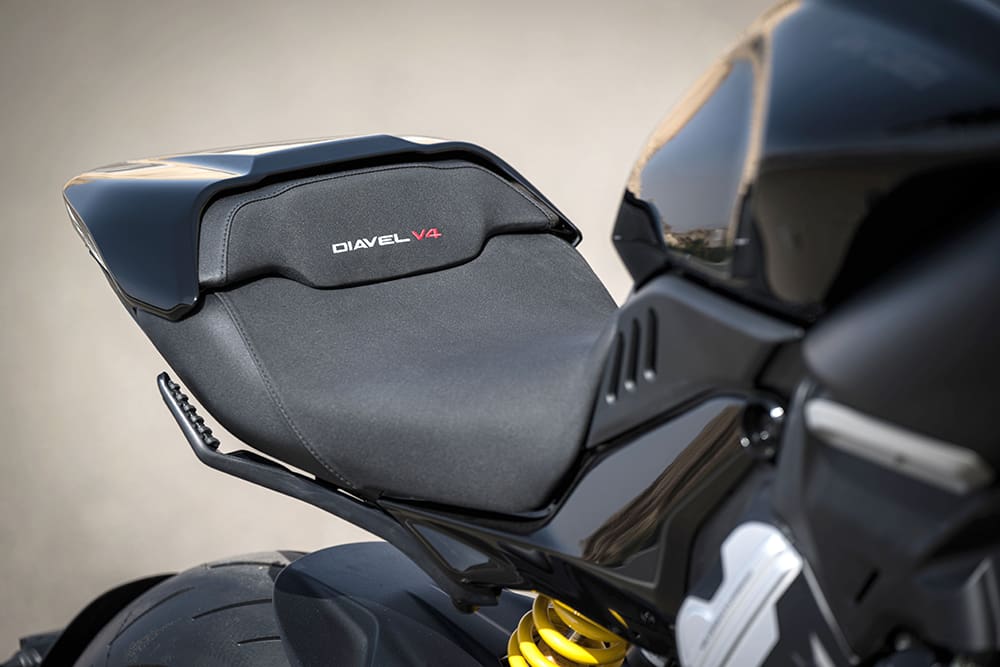
Despite its aggressive looks and somewhat intimidating 240-section rear Pirelli, the V4 Diavel is easy to ride. It fits all sizes and is a pussycat to manoeuvre and balance at low speeds. In damp or cold conditions the electronic rider aids will be hugely advantageous and, being a Ducati, will be virtually perfect, too. Newer or more cautious riders can even reduce the V4’s output in Urban and Wet modes to an extremely user-friendly 86kW (115hp).
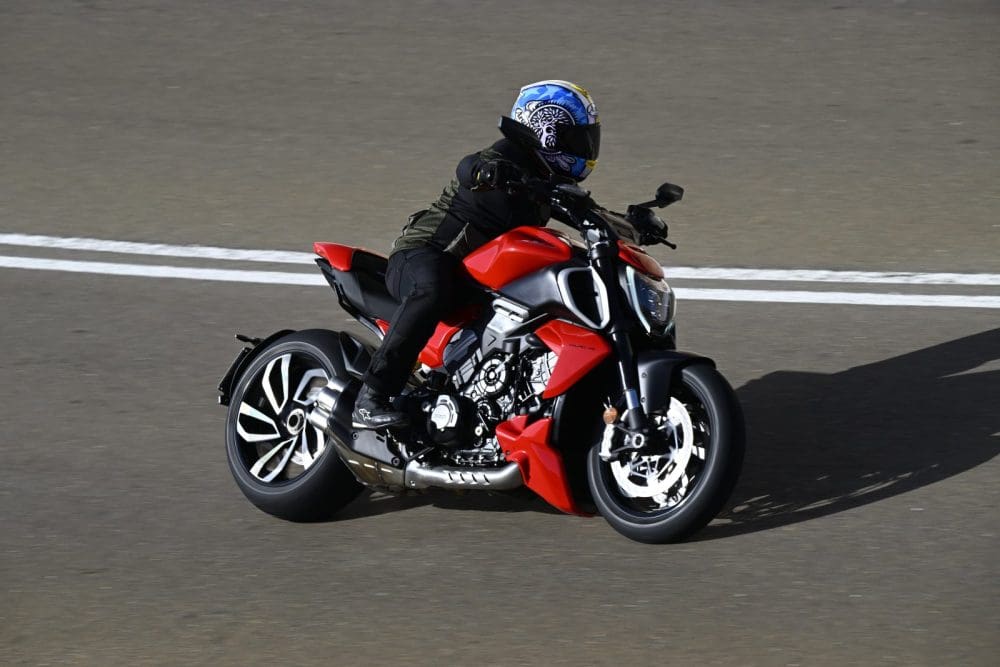
In fact, while AMCN spent most of the ride pushing the limits of the Diavel V4’s handling and performance – and, I have to say, having amazing fun – in the real world, many Diavels will be used for genuine cruising duties and looking good around town en route to the shops. Thankfully, it’s just as good at the everyday stuff as it is at weekend heroics and the looks and sound of the thing will turn heads wherever it goes.
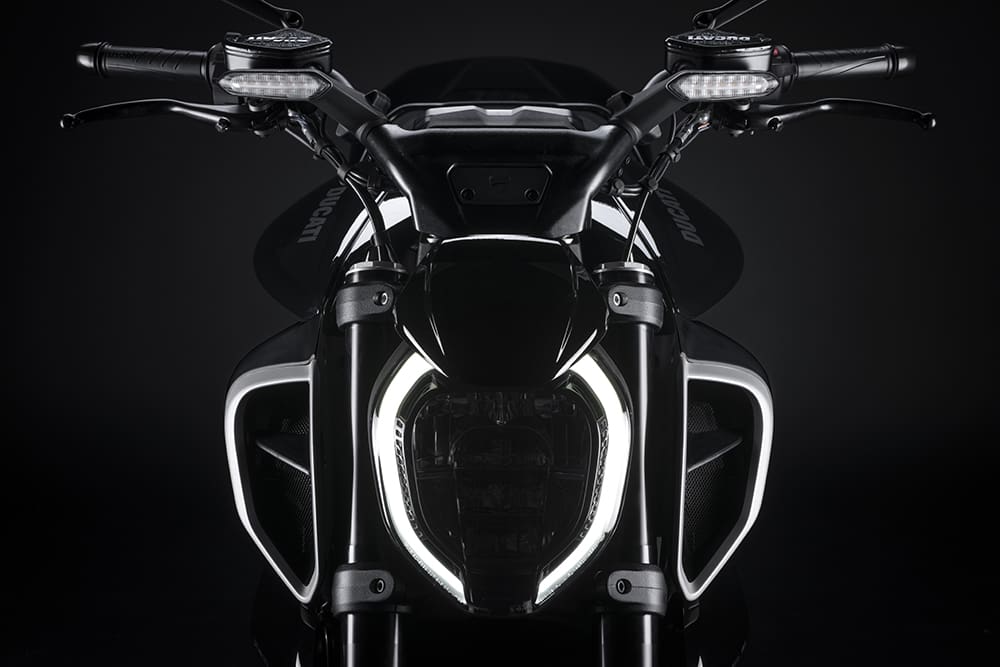
I was expecting a Ducati Diavel with a V4 engine and a machine that was marginally sportier than before; an improvement, sure, but not a big step. I was wrong. This is a big step over the old twin-cylinder Diavel, which is itself a very accomplished performer.
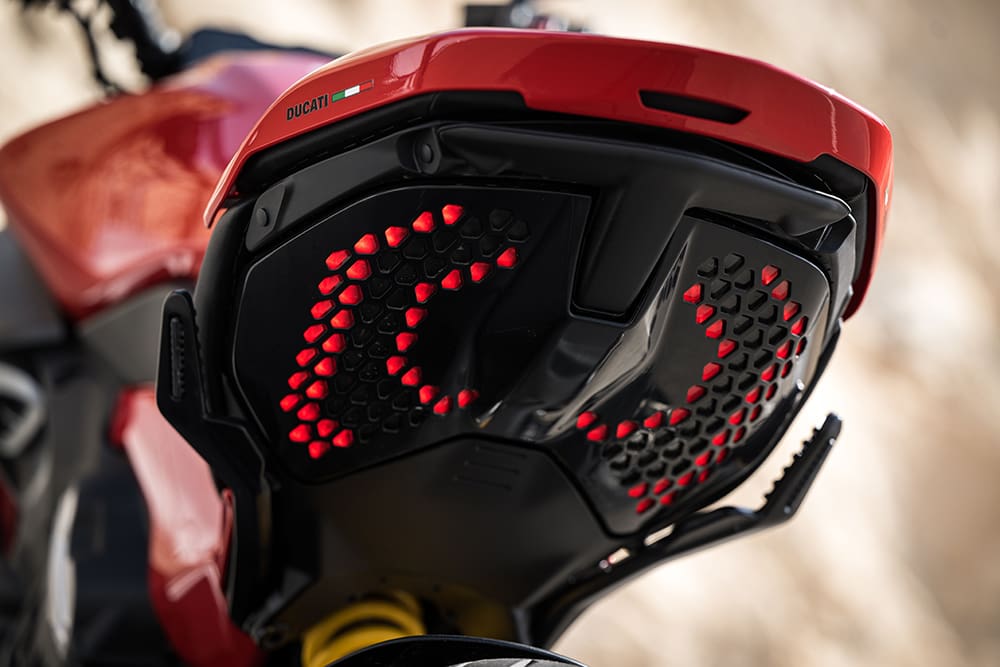
The new monocoque chassis makes a huge difference. It feels considerably lighter, much more agile with a sportier edge. A steeper head angle, the reduction in weight, the counter-rotating crank all add up to produce a staggeringly agile muscle bike.
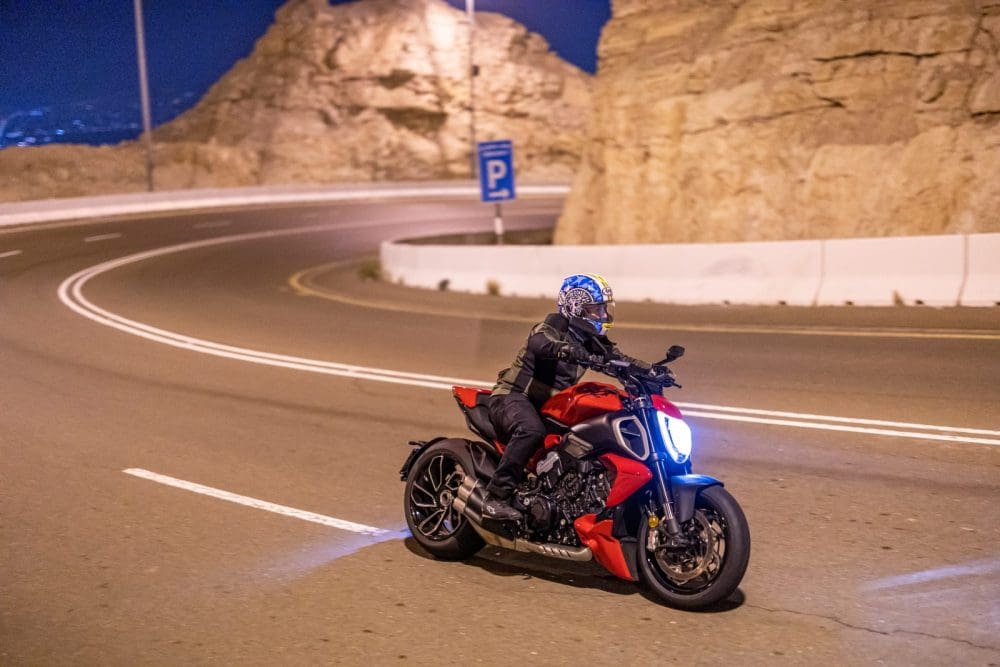
Then there are the improvements to the brakes, which are phenomenal. There are improved rider aids and electronics, an attractive and functional new design plus a much improved dash.
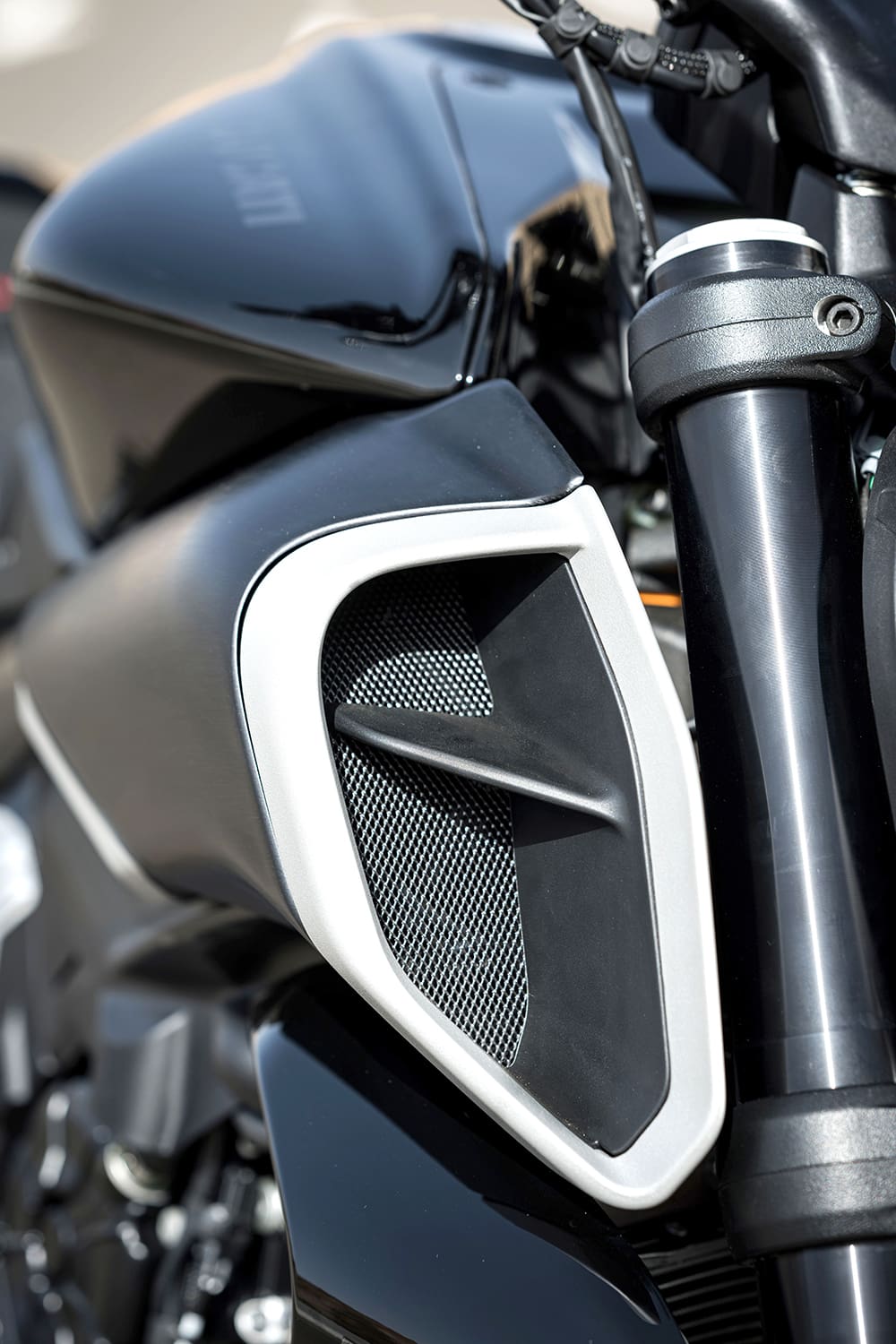
And, of course, there’s the new Granturismo V4, which fits perfectly with this bike. It’s smooth, soft, perfectly fueled, has buckets of torque and it revs to the heavens the way few engines can when you feel in the mood.
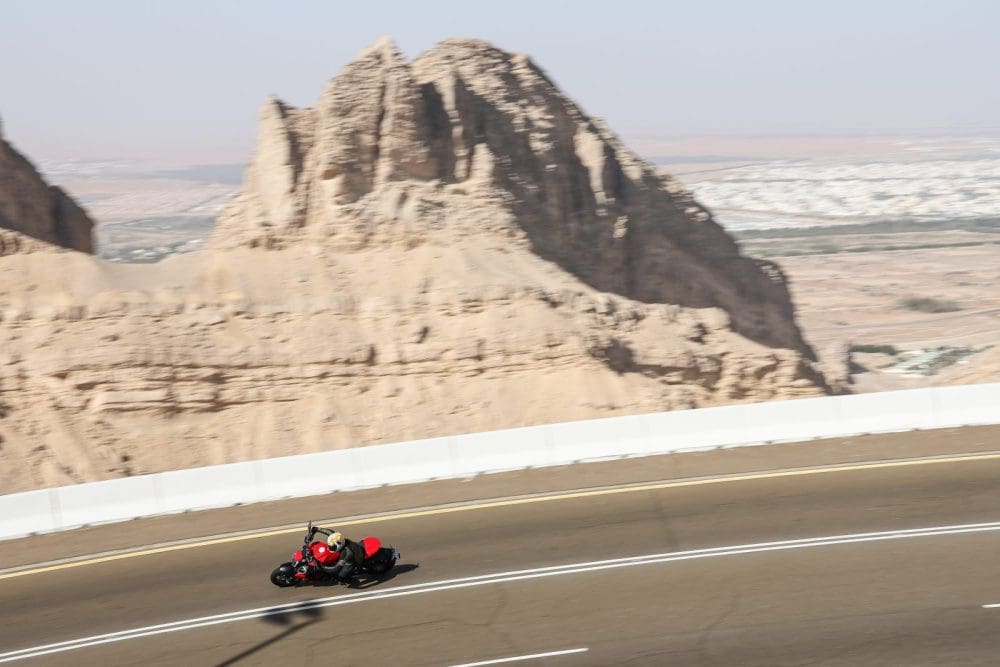
Starting at $41,100 (ride away), the only downside is the price. But this is a fun, versatile, attractive and desirable bike. If you want one of the best, I guess you have to pay for it.
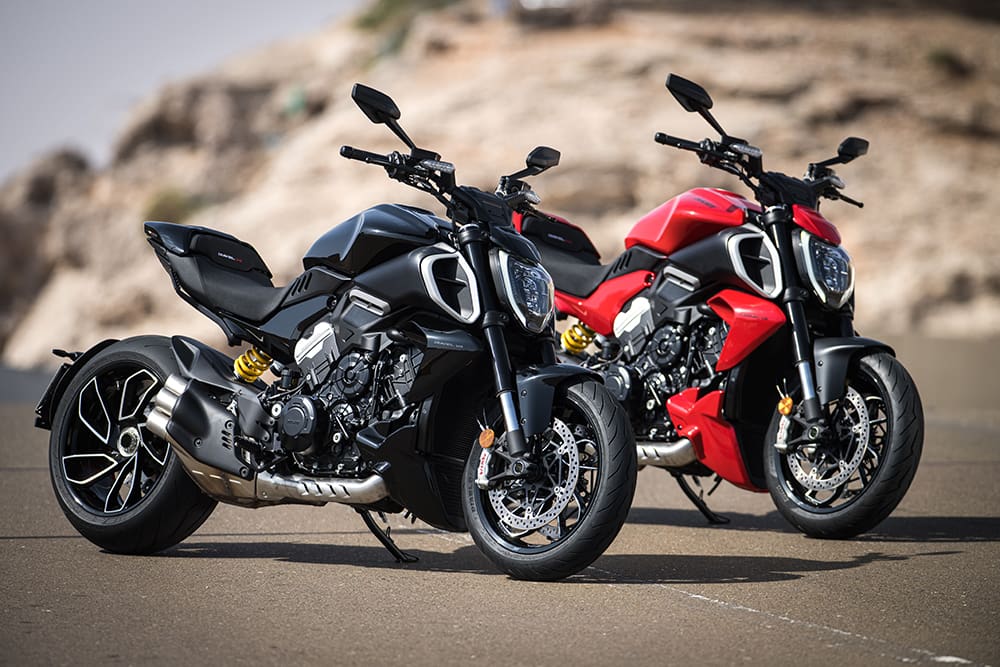
Test Adam Child + Photography Alex Photo
